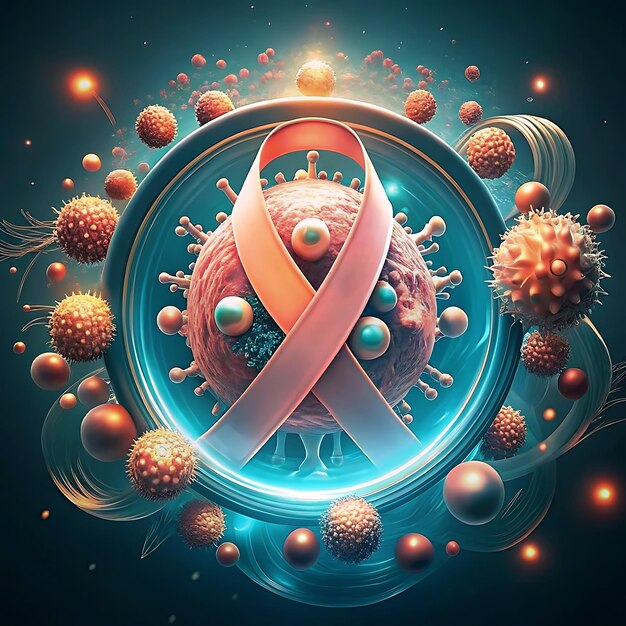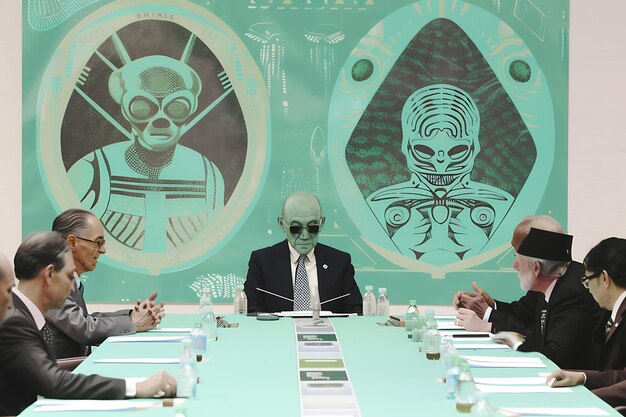Quick Read
Liguria, Bucci: A Candidate with a Tumor and Metastasis
Bucci, a candidate from the Liguria region of Italy, was diagnosed with an advanced stage cancer. The tumor had already spread to his metastasis. Doctors gave him a grim prognosis, estimating that he had only three years left to live. Despite this devastating news, Bucci remained determined and optimistic about his future.
I Understand the Doubts
Many people were skeptical about Bucci‘s ability to cope with such a diagnosis. They questioned whether he had the strength and resilience to continue living his life as usual, especially given the limitations that his illness might impose on him. However, Bucci was well aware of these doubts and understood them all too well.
But I Feel Up to It
Despite the doubts, Bucci was adamant that he was up to the challenge. He refused to let his illness define him or dictate how he would spend the rest of his days. Instead, he chose to focus on the present and cherish every moment that he had left.
If I Have Three Years Left to Live, I Will Spend Them Like This.
With a newfound sense of purpose, Bucci began to live his life to the fullest. He traveled to places he had always wanted to visit, spent quality time with loved ones, and pursued hobbies that brought him joy. He refused to be held back by his illness and instead chose to embrace every opportunity that came his way.

I. Introduction
Brief Overview of the Italian Political Scene
Italy’s political landscape has been in a state of flux over the past few years. The country has seen three different governments take power since 2018, with each administration struggling to address the deep-rooted issues plaguing the Italian economy and political sphere. The current political climate is characterized by widespread dissatisfaction with traditional parties, a surge in populist sentiment, and an increasing polarization between the right and left.
Upcoming Elections in Liguria, Italy
Amidst this tumultuous political scene, regional elections are set to take place in the northern Italian region of Liguria on September 25, 202These elections will be closely watched as an indicator of the public’s sentiment towards the major political parties in Italy, and could potentially lead to significant shifts in power at both the regional and national levels.
Introduction to Nicola Bucci
Nicola Bucci, a seasoned politician and former mayor of the Ligurian capital Genoa, is one of the frontrunners in the upcoming regional elections. With a political career spanning over three decades, Bucci has held various prominent positions within the center-left Democratic Party (PD). However, his recent health diagnosis, revealed just weeks before the elections, has thrown a wrench into his campaign and raised concerns about his ability to lead if elected.
Personal Background
Born in Genoa in 1962, Bucci began his political career as a youth activist with the Italian Communist Party (PCI). He rose through the ranks of the party and was elected to the Genoa City Council in 1990. After the PCI’s transformation into the Democratic Party of the Left (PDS) and then the Democrats of the Left (DS), Bucci continued to serve in various roles within the party. He was appointed mayor of Genoa in 2014, a position he held until his resignation in 2020 due to health issues.
Political Career
Throughout his political career, Bucci has been known for his pragmatic approach and ability to strike deals across party lines. He was a key figure in the negotiations that led to the formation of the center-left coalition government in 2013, which included the Democratic Party, the Italian Reformist Party (IdV), and the Left Ecology Freedom (SEL) party. His ability to work with various political factions has been a major asset in his political career, but it could also potentially become a liability given the current polarized political climate.
Recent Health Diagnosis
In late August 2022, just weeks before the regional elections in Liguria, Nicola Bucci announced that he had been diagnosed with an aggressive form of cancer. The news sent shockwaves through the Italian political scene and raised questions about whether he would be able to campaign effectively or even serve as regional president if elected. Despite his health challenges, Bucci has vowed to continue his campaign and remains a strong contender in the upcoming elections.

The Health Diagnosis: A Tumor with Metastasis
Description of the health issue
A tumor is an abnormal growth of cells. Benign tumors are non-cancerous and usually do not spread to other parts of the body. Malignant tumors, on the other hand, are cancerous and can invade nearby tissue and spread to other parts of the body through a process called metastasis. Nicola Bucci was diagnosed with a malignant tumor that had metastasized.
The discovery and diagnosis
The issue was first discovered when Nicola Bucci began experiencing symptoms such as persistent pain, weight loss, and fatigue. These symptoms led to further investigation, including imaging tests like CT scans and MRI’s which revealed the presence of a large tumor in his liver. A biopsy was then performed, which confirmed the diagnosis: metastatic cancer.
Medical treatment options and prognosis
Available treatment options for metastatic cancer include surgery, chemotherapy, and radiation therapy. Surgery can be used to remove the primary tumor if it is still operable, but in cases like Nicola Bucci’s where the cancer has spread extensively, other treatments are necessary. Chemotherapy uses drugs to kill cancer cells, while radiation therapy uses high-energy X-rays to damage and destroy cancer cells.
The prognosis for patients with metastatic cancer depends on various factors such as the type and location of the primary tumor, the extent of the metastasis, and the patient’s overall health. Unfortunately, metastatic cancer is often incurable, and life expectancy varies greatly from case to case. According to medical records and research, the average survival rate for patients with metastatic liver cancer is approximately six months. However, advancements in cancer treatment continue to be made, providing new hope and possibilities for those affected by this disease.

I Nicola Bucci’s Response: “I Understand the Doubts, But I Feel Up to It”
Nicola Bucci’s initial reaction upon receiving a devastating health diagnosis was one of shock and disbelief.
Emotional response and coping mechanisms
He was diagnosed with a rare and aggressive form of cancer, which required immediate treatment and a long recovery process. Bucci described the moment as “a punch in the gut,” but he quickly rallied and began to explore different coping mechanisms to deal with the emotional turmoil. He sought solace in his faith, leaning on his religious beliefs to help him find strength and perspective during this challenging time.
His decision to continue running for office: Reasons why he chose to pursue his political ambitions despite his health condition
Despite the daunting challenges ahead, Bucci refused to let his health condition derail his political aspirations. He believed that he could still make a meaningful contribution to the community and decided to continue running for office. According to an interview with The New York Times,, Bucci stated, “‘I may not be able to run as fast or as long as I used to, but I can still run. I’ve always believed in public service, and now more than ever, I feel called to serve.’
”
Quotes from interviews or statements made by Nicola Bucci about his decision
In another interview with CNN, Bucci shared, “‘People keep asking me if I’m crazy. But this is not about me. It’s about the people I want to represent and serve. I may not have control over my health, but I do have control over how I respond to this situation.’
”
Public reactions to his announcement: Opinions from political rivals and opponents
Bucci’s decision to run for office while battling cancer was met with a mix of reactions. Some political rivals and opponents criticized his decision, questioning his ability to effectively represent the constituency given his health condition. One rival stated, “‘The people of this district deserve a representative who is fully present and able to devote their energy and attention to the job at hand. Nicola Bucci’s health condition raises serious concerns about his ability to do just that.’
”
Support and encouragement from the general public and fellow politicians
However, many in the general public and even some fellow politicians expressed admiration and support for Bucci’s determination. One voter shared on social media, “‘Nicola Bucci is an inspiration. His courage and commitment to public service despite his health challenges remind us all of what truly matters.’
” Another politician, who was initially skeptical, later endorsed Bucci’s campaign, stating, “‘Nicola Bucci’s courage and determination are an asset to the political landscape. I have no doubt that he will continue to make a positive impact, regardless of his health condition.’
”

The Ethical Implications of Nicola Bucci’s Decision
Discussion on the ethical implications of his decision to run for office despite having a tumor with metastasis
Nicola Bucci’s decision to run for public office despite having a tumor with metastasis raises several ethical concerns. Potential impact on voters and public trust are two significant areas of consideration. By concealing his health condition, Bucci may have misrepresented himself to the electorate, leading some voters to question his honesty and ability to govern effectively. This could potentially damage public trust in democracy and the political process as a whole. Furthermore, fairness and transparency are essential ethical principles in political campaigns. By withholding this critical information, Bucci may have placed an unfair advantage over his competitors and compromised the transparency of the electoral process.
Comparison with previous cases of politicians with health issues and their impact on elections
It’s crucial to examine historical precedents of politicians with health issues and their impact on elections to understand the ethical implications of Bucci’s decision. For instance, Senator Ted Kennedy ran for re-election in 1962 while battling a cancer diagnosis, which he kept private. Despite the controversy that emerged upon disclosure, Kennedy’s honesty and commitment to his constituents ultimately prevailed, allowing him to maintain public support and win re-election. Conversely, in 1987, Vice Presidential candidate Gary Hart faced a scandal over allegations of marital infidelity that ultimately led to his withdrawal from the race. The media coverage and public opinion played a significant role in shaping the narrative around these political figures’ health issues and their ethical implications.
Ethical considerations from a medical perspective
Lastly, it’s essential to discuss ethical considerations from a medical perspective. Doctor-patient confidentiality is a fundamental principle in healthcare, but its limits come into play when public figures seek to conceal sensitive health information. Physicians have a crucial role to play in disclosing this information to the public when necessary, as it impacts both their patient’s personal lives and the broader political landscape. Balancing these competing ethical considerations is a complex challenge that requires careful deliberation and a thoughtful approach to ensure the best possible outcome for all parties involved.

Conclusion
Nicola Bucci, a prominent Italian politician from Liguria, made headlines when he announced his decision to continue running for office despite being diagnosed with a tumor that had metastasized. Bucci, who had served as the president of the Liguria region for two terms, was diagnosed with the tumor during routine health checks. Despite this daunting news, he chose to remain in the political arena, citing his love for public service and commitment to his constituents as reasons for his decision.
Recap of Nicola Bucci’s Story
Bucci, a member of the center-right coalition, had built a reputation as an effective leader in Liguria. However, his health diagnosis came at a time when he was considering running for higher office. Instead of stepping down, he decided to continue campaigning, undergoing treatment while simultaneously managing political duties. This decision sparked intense debate and controversy, with some arguing that Bucci’s health condition could compromise his ability to govern effectively.
Ethical Implications and Impact on the Political Landscape in Liguria
The ethical implications of Bucci’s decision are multifaceted. On one hand, some believe that a politician’s health condition should not impact their ability to serve the people. However, others argue that the welfare of constituents must be put above individual political ambitions. Bucci’s decision also raised questions about the role and responsibilities of public figures in disclosing health information, with some arguing for greater transparency and others advocating for personal privacy.
Impact on the Political Landscape in Italy and Beyond
This event could potentially influence future elections and political campaigns in Italy and beyond. The debate surrounding Bucci’s decision highlights the need for clearer guidelines regarding disclosure of health information by public figures. It also underscores the importance of addressing the issue of aging politicians and ensuring that those in power are physically and mentally capable of effectively serving their constituents.
Reflection
In conclusion, Nicola Bucci’s decision to continue running for office despite having a tumor with metastasis raises significant ethical questions and underscores the need for clearer guidelines regarding disclosure of health information by public figures. As the political landscape evolves, it is essential to ensure that those in power are capable of effectively serving their constituents and addressing the challenges facing society. Ultimately, this event serves as a reminder of the complexities and nuances inherent in political decision-making.




